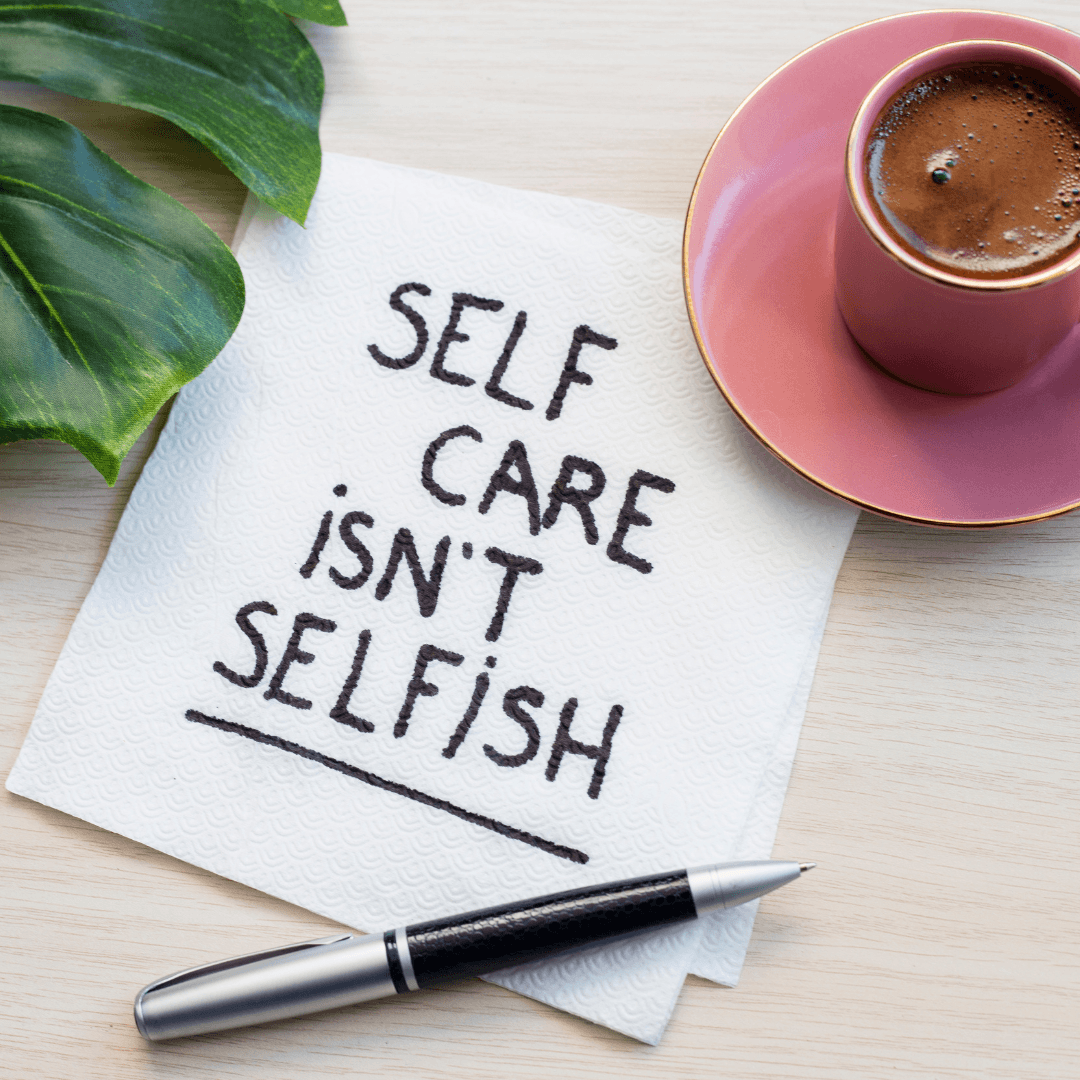Best 10 Tips For Managing Stress
In today's fast-paced world, stress has become almost inevitable and negatively impacts both our physical and mental well-being.
An effective stress management strategy becomes essential for sustaining a balanced and healthy lifestyle as we navigate work, relationships, and other responsibilities.
This article explores the best 10 tips for managing stress. These tips are insightful suggestions that provide helpful and comprehensive methods for managing stress.
These tactics, which range from mindfulness practices to lifestyle modifications, are designed to help people overcome obstacles in their everyday lives and develop resilience in the face of stress.
These pointers provide a road map for developing serenity and enhancing general well-being, regardless of the stressors in your life—personal struggles, work deadlines, or just a general sense of being overwhelmed.
Come along on a journey where you'll learn valuable insights and techniques that can significantly improve your mental health, resilience, and overall quality of life.
What Is Stress And How Does It Affect You?
Stress is the body's natural response to any demand or challenge, a biological mechanism finely tuned through evolution to help us survive.
In the face of perceived threats, whether real or imagined, our bodies release a surge of hormones, including adrenaline and cortisol, preparing us for a “fight or flight” response.
While this ancient stress response was essential for our ancestors facing physical dangers, today's stressors are often more complex and psychological.
Modern life bombards us with constant stimuli—work deadlines, relationship pressures, financial concerns—triggering the same primal response, albeit in a less straightforward way.
Physically, stress can manifest as tense muscles, elevated heart rate, and shallow breathing. But its impact extends beyond the physical realm, affecting our mental and emotional well-being.
Chronic stress can lead to heightened anxiety, disrupted sleep patterns, and even contribute to conditions like depression.
Moreover, stress doesn't discriminate; it affects individuals differently based on their unique coping mechanisms and life circumstances.
Some may thrive under pressure, while others find themselves overwhelmed. Recognizing the signs and understanding personal triggers are crucial steps toward effective stress management.
Ultimately, by acknowledging stress as a natural part of life and adopting healthy coping strategies, individuals can navigate its challenges and cultivate resilience in the face of life's inevitable pressures.
Understanding Stress Levels
Knowing how to handle stress is similar to riding a roller coaster through the highs and lows of life's obstacles.
Mastering the tips for managing stress is akin to gaining control over the twists and turns of life's roller coaster, providing a stabilizing influence amid the peaks and valleys of challenges.
Picture stress as a dynamic force, fluctuating in response to various triggers, much like a spirited dance with circumstances and emotions.
On the positive side, a moderate stress level can be a motivational tune, propelling us to conquer tasks and meet deadlines.
That adrenaline-fueled surge turns pressure into productivity, giving us the energy to overcome obstacles.
However, the tricky part lies in finding the sweet spot. Too much stress and the roller coaster veers into the anxiety-inducing loop, impacting mental health, sleep, and overall well-being.
Conversely, too little stress might transform life into a stagnant pond devoid of the stimulating challenges that fuel personal growth and achievement.
Understanding stress levels involves recognizing these ebbs and flows, acknowledging the intensity of our ride, and developing strategies to navigate twists and turns.
It's about finding balance and embracing the invigorating climbs while learning to coast through the downhill stretches.
By tuning into the rhythm of our stress levels, we gain the insight needed to harness its positive energy, manage its challenges, and ensure that our roller coaster ride through life remains exhilarating rather than overwhelming.
The Importance Of Stress Management
Stress is an inevitable note in the symphony of life, but its melody need not be discordant. Understanding the importance of stress management is akin to wielding a conductor's baton, orchestrating harmony amid life's chaotic crescendos.
Unchecked stress is a relentless conductor, directing our bodies into a cacophony of heightened heart rates, tense muscles, and anxious minds. It doesn't discriminate, affecting our physical and mental well-being.
However, when we grasp the significance of managing stress, we become the maestros of our well-being. Effective stress management is composing a serene and balanced opus amidst life's challenges.
It bridges chaos and calm, empowering individuals to navigate adversity with resilience. Beyond its immediate impact on health, stress management is the linchpin of emotional stability, fostering mental clarity and fortitude.
Moreover, the importance of stress management extends beyond the individual, resonating in the broader symphony of relationships, work, and daily interactions.
It is the compass guiding us through life's unpredictable movements, ensuring that the melody we create is one of vitality, well-being, and fulfillment.
In acknowledging and mastering stress management, we preserve our harmony and contribute to the collective resonance of a healthier and more harmonious world.
Create a Profitable Holistic Business That Transforms Lives
🌿 Discover inspiring holistic business ideas that blend nature, wellness, and purpose.
Learn how passionate nature lovers are building income streams while helping others live more balanced, mindful lives.
Read Profitable Holistic Business Ideas That Transform Lives
Introducing The Best 10 Tips For Managing Stress
In the hustle of modern life, stress is an inevitable companion. To navigate this demanding landscape, we present the best 10 tips for managing stress.
As we navigate the complex interplay of work, relationships, and personal responsibilities, the need for effective stress management has never been more crucial. So, let’s start exploring:
Tip 01: Prioritize Self-Care
Self-care is essential for maintaining well-being and managing stress. Regularly setting aside time for yourself allows you to mentally and physically recharge.
Take part in activities customized to your needs and preferences that make you happy and relaxed. Reading, for instance, offers an escape into different worlds, providing a mental break from stressors.
Exercise contributes to physical health and releases endorphins, the body's natural mood lifters. Meditation cultivates mindfulness, helping you stay present and centred amid life's challenges.
Spending quality time with loved ones fosters social connections and emotional support, creating a strong foundation for resilience. Establishing a self-care routine isn't selfish; it's a proactive approach to maintaining balance and preventing burnout.
Whether it's a quiet moment with a book, a rejuvenating workout, a few minutes of meditation, or shared laughter with family and friends, these activities contribute to your overall well-being, making you better equipped to handle life's demands.

Tip 02: Time Management
Effective time management is a key strategy for reducing stress and enhancing productivity. Begin by organizing tasks and creating a comprehensive list of responsibilities.
Sort these tasks into priority lists according to their importance and urgency, using frameworks such as the Eisenhower Matrix to help you do so.
Dividing more complex tasks into smaller, more manageable steps is practical. This makes the workload less daunting and allows for a clear, structured progression. Assign realistic deadlines to each step, ensuring you're not setting yourself up for unnecessary pressure.
Incorporating organizational tools like to-do lists and time-blocking into your routine is an indispensable tip for managing stress, empowering you to navigate deadlines with a sense of control and efficiency while adapting to changing priorities.
Regularly review and adjust your schedule, adapting to changing priorities or unexpected developments. By proactively managing your time and tasks, you can cultivate a sense of control, reduce the stress associated with looming deadlines, and ultimately enhance your overall efficiency and well-being.

Tip 03: Healthy Lifestyle
Maintaining a healthy lifestyle is foundational for stress management and overall well-being. Start with a nutrient-dense, well-balanced diet prioritizing whole grains, fruits, and vegetables over lean proteins.
Proper nutrition provides the energy and resources your body needs to function optimally, impacting physical and mental health.
Regular exercise is a powerful stress reducer. Physical activity releases endorphins, the body's natural mood enhancers, and helps dissipate the physiological effects of stress. Try incorporating strength, flexibility, and aerobic activities to increase general fitness.
As important as ensuring enough sleep is getting enough of it. Adequate sleep enables the body to regenerate and mend, bolstering mental abilities and emotional fortitude.
Reduce disturbances for a restful night's sleep by creating a sleep-friendly atmosphere and sticking to a regular sleep schedule.
These healthy lifestyle habits collectively contribute to a robust immune system, improved mental clarity, and increased resilience in the face of stressors.
Prioritizing your physical well-being creates a solid foundation for navigating life's challenges with vitality and a positive mindset.

Tip 04: Mindfulness And Meditation
Mindfulness and meditation are powerful tools for cultivating mental clarity, reducing anxiety, and enhancing your ability to manage stress.
Including mindfulness and meditation in your daily routine is a pivotal element of effective tips for managing stress, offering a profound approach to reducing anxiety and fostering mental clarity through practices like focused breathing.
Mindfulness involves consciously directing your attention to the present moment without judgment. One common practice is focused breathing, where you pay attention to each breath, fostering a sense of calm and centeredness.
Meditation, on the other hand, often involves guided exercises or silent reflection, encouraging deep relaxation. Techniques may include body scan meditations, loving-kindness meditations, or simply observing thoughts without attachment.
Consistent mindfulness and meditation practices positively impact the brain's structure and function, promoting emotional regulation and resilience in the face of stressors.
Training your mind to stay present reduces the tendency to dwell on past regrets or worry about the future. Even temporarily, incorporating these techniques into your everyday routine can have long-lasting advantages.
Whether through guided sessions, meditation apps, or mindful breathing exercises, incorporating these techniques helps create a mental space that fosters clarity, emotional well-being, and a more effective response to life's challenges.

Tip 05: Learn To Say No
Learning to say no is vital for preserving your well-being and managing stress effectively.
Recognizing your limits and having the courage to decline additional commitments when you're stretched thin is crucial. It involves an understanding that your time and energy are finite resources that need protection.
Setting boundaries is at the core of this practice. Clearly define what you can realistically handle without compromising your mental, emotional, and physical health.
Saying no doesn't equate to a lack of cooperation or willingness; rather, it's a strategic decision to safeguard your overall well-being.
When you feel overwhelmed, pause and assess your current commitments. Prioritize tasks and obligations, and be honest with yourself about your capacity.
If a new request aligns with your priorities and is manageable, accept it. However, if it threatens to tip the balance, politely decline.
Establishing and communicating boundaries protects your mental health and shows others you respect your limitations.
This fosters a healthier work-life balance, reduces the risk of burnout, and enables you to approach your responsibilities with greater focus and effectiveness.

Tip 06: Positive Thinking
Cultivating a positive mindset is a transformative stress management approach involving actively shifting your thoughts and perspectives.
Challenging negative thoughts and reframing stressful situations can enhance resilience and foster a more optimistic outlook.
One key aspect of positive thinking is awareness. Begin by identifying negative thoughts as they arise and questioning their validity.
Ask yourself if there is evidence to support these thoughts or if they might be based on assumptions or habitual patterns. Once identified, consciously replace negative thoughts with positive or neutral alternatives.
Another effective technique for positive thinking is gratitude practice. You can change your attention from stressors to positive aspects of your life by routinely recognizing and appreciating them.
You can accomplish this by writing in a gratitude diary or pausing daily to consider your blessings.
Moreover, positive thinking doesn't deny the existence of challenges but rather reframes them as opportunities for growth.
By approaching stressors with a mindset geared towards solutions and learning, you empower yourself to navigate difficulties more effectively.
Over time, cultivating positive thinking becomes a habit, contributing to greater emotional well-being and a heightened ability to bounce back from adversity.

Tip 07: Regular Breaks
Incorporating regular breaks into your daily routine is a strategic approach to maintaining productivity and managing stress. Even if brief, these breaks are crucial in recharging your mental and physical energy.
Extended periods of continuous work can lead to burnout and decreased cognitive performance. Short breaks allow you to step away from tasks, allowing your brain to reset and preventing mental fatigue.
This interruption in work also facilitates improved focus and concentration when you return to your responsibilities.
Take breaks and do things that help you decompress and think clearly. This might include a short walk, deep breathing exercises, or a quick mindfulness session.
Physical movement stimulates blood flow, contributing to increased alertness and productivity.
Strategic breaks also foster creativity and problem-solving. Stepping away from a challenging task allows your brain to process information subconsciously, often leading to innovative insights when you return.
Making breaks a non-negotiable part of your routine creates a sustainable work habit that enhances productivity and contributes to your overall well-being.
Prioritizing regular breaks as a non-negotiable part of your routine is essential for managing stress and fostering a sustainable work habit that enhances productivity and contributes to overall well-being by preventing burnout and maintaining a healthy work-life balance.

Tip 08: Breathing Exercises
Deep breathing exercises, particularly diaphragmatic breathing, are potent tools for stress reduction and promoting a sense of calm.
This technique involves engaging the diaphragm, the muscle separating the chest and abdomen, to facilitate slower, deeper breaths.
To practice diaphragmatic breathing, find a comfortable seated or lying position. Put one hand on your abdomen and the other on your chest.
Take a deep breath through your nose, and let your abdomen expand while your chest remains unchanged.
Feel your belly contract as you gently release the breath through pursed lips. Pay attention to how your diaphragm rises and falls and how your breath feels.
Incorporate deep breathing into your daily routine or use it during heightened stress. Consistent practice can contribute to long-term stress management, whether a few minutes in the morning, a break at work, or before bedtime.
By fostering a mindful connection to your breath, you gain a valuable tool for navigating stress, improving emotional well-being, and promoting overall resilience.

Tip 09: Humour And Laughter
Infusing humour and laughter into your daily life is a delightful and effective strategy for mitigating stress and enhancing your overall well-being.
Laughing causes the body's endogenous feel-good chemicals, known as endorphins, to be released, which instantly makes you feel happy and relaxed.
Finding moments of joy can be as simple as sharing a joke with a colleague, watching a funny video, or attending a comedy show.
Laughing releases tension by lowering stress hormone levels in the body and being an instant mood enhancer.
Moreover, humour provides a valuable perspective shift in challenging situations. It allows you to see things from a lighter and more positive angle, fostering resilience and adaptability.
When faced with stressors, incorporating humour can act as a coping mechanism, helping you navigate difficulties with a more balanced and optimistic mindset.
Create opportunities for laughter in your routine, surround yourself with positive and humorous influences, and don't hesitate to see the lighter side of life.
Whether it's a witty remark, a funny movie, or shared laughter with friends, cultivating a sense of humour contributes significantly to stress relief and a more joyful approach to daily challenges.

Tip 10: Unplug From Technology
Unplugging from technology is crucial to stress management in our increasingly digital world. Setting aside time to unplug from emails, social media, and other electronic distractions provides much-needed relief from the never-ending stream of information and stimulation.
Continuous connectivity can contribute to heightened stress levels, as the constant influx of notifications and messages can create a sense of urgency and perpetually tether you to work or social obligations.
Establishing boundaries with technology provides a mental and emotional break, allowing you to recharge and regain focus. During designated tech-free periods, engage in activities that foster relaxation and genuine connection.
This could involve spending quality time with loved ones, enjoying outdoor activities, reading a physical book, or practicing mindfulness.
The absence of digital distractions enables a deeper immersion in the present moment, reducing the mental clutter associated with constant connectivity.
By consciously choosing when to disconnect, you regain control over your time and attention, promoting mental well-being and preventing the negative impact of information overload.
This intentional separation from screens fosters a healthier work-life balance and contributes to a more mindful and relaxed state of mind.

Conclusion
In conclusion, embracing the ten tips for managing stress offers a comprehensive and personalized approach to cultivating resilience, reducing the impact of stressors, and fostering overall well-being in your life.
Managing stress is crucial to maintaining well-being and navigating life's challenges effectively. The ten suggestions here offer a comprehensive strategy addressing stress's mental, emotional, and physical aspects.
Stress management is an individual process that requires self-awareness and a dedication to well-being.
Incorporating these suggestions into your everyday routine allows you to develop resilience, mitigate the effects of stressors, and promote a happier and more satisfying existence.
Remember, seeking support and prioritizing self-care are essential to a sustainable stress management strategy.
I trust you enjoyed this article on the Best 10 Tips For Managing Stress. Please stay tuned for more inspiring guides, helpful tips, and ideas to help you live closer to nature every day.
Take care!
— JeannetteZ🌿
💬 Your Opinion Is Important To Me
Do you have thoughts, ideas, or questions? I’d love to hear from you. Please leave your comments below or email me directly at Jeannette@Close-To-Nature.org.
📚 More Nature-Inspired Reads
Explore more ways to connect with nature, nurture your pets, and live in harmony with the world around you 🌿







